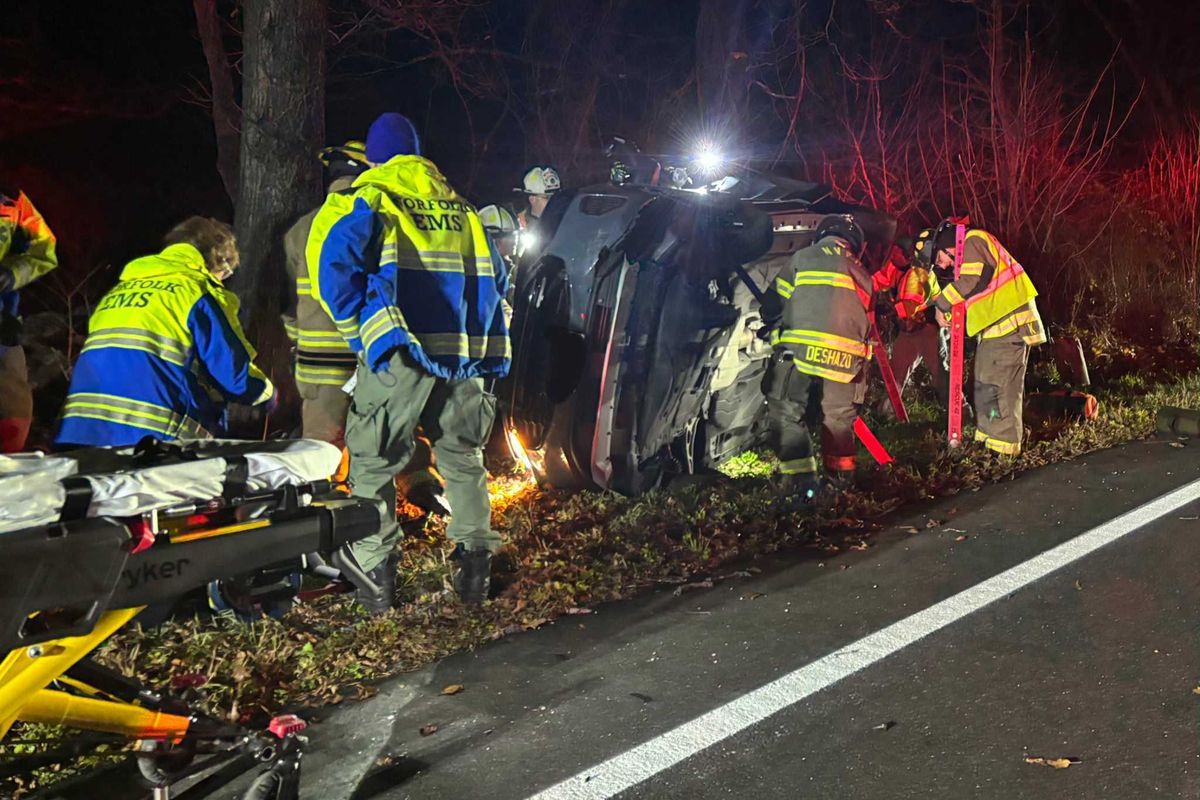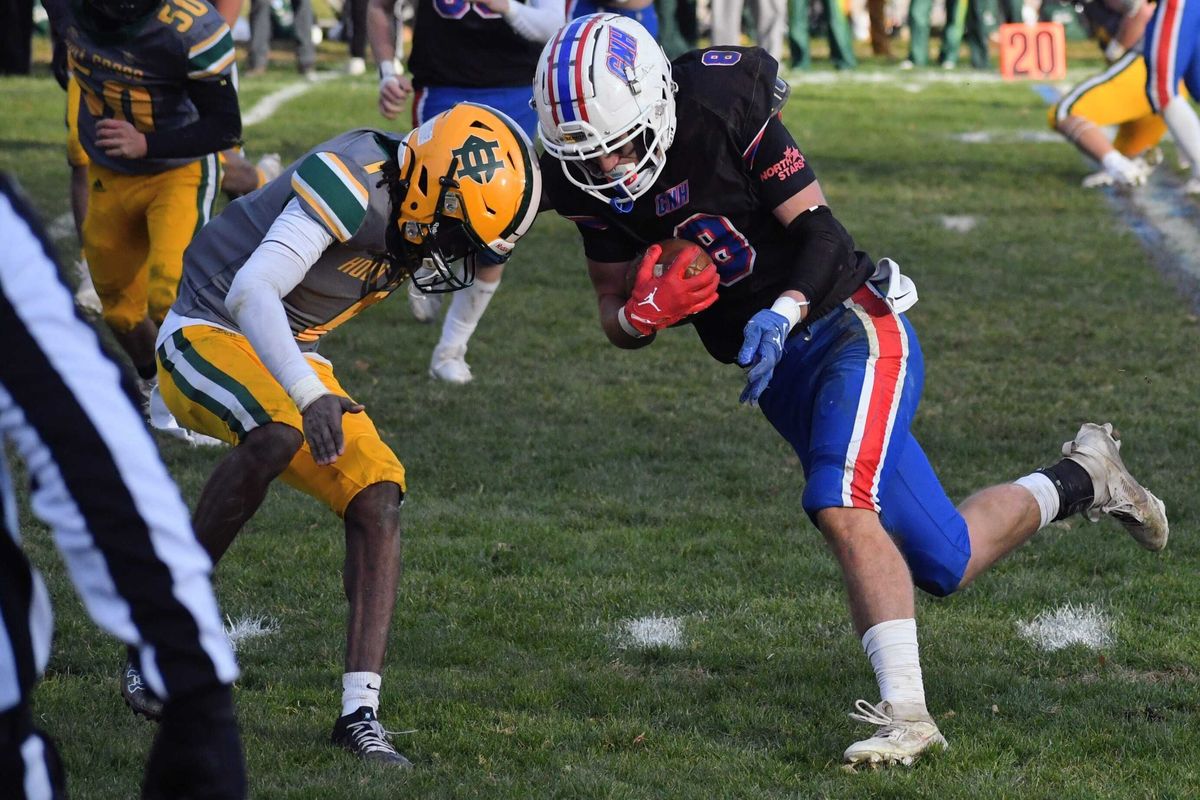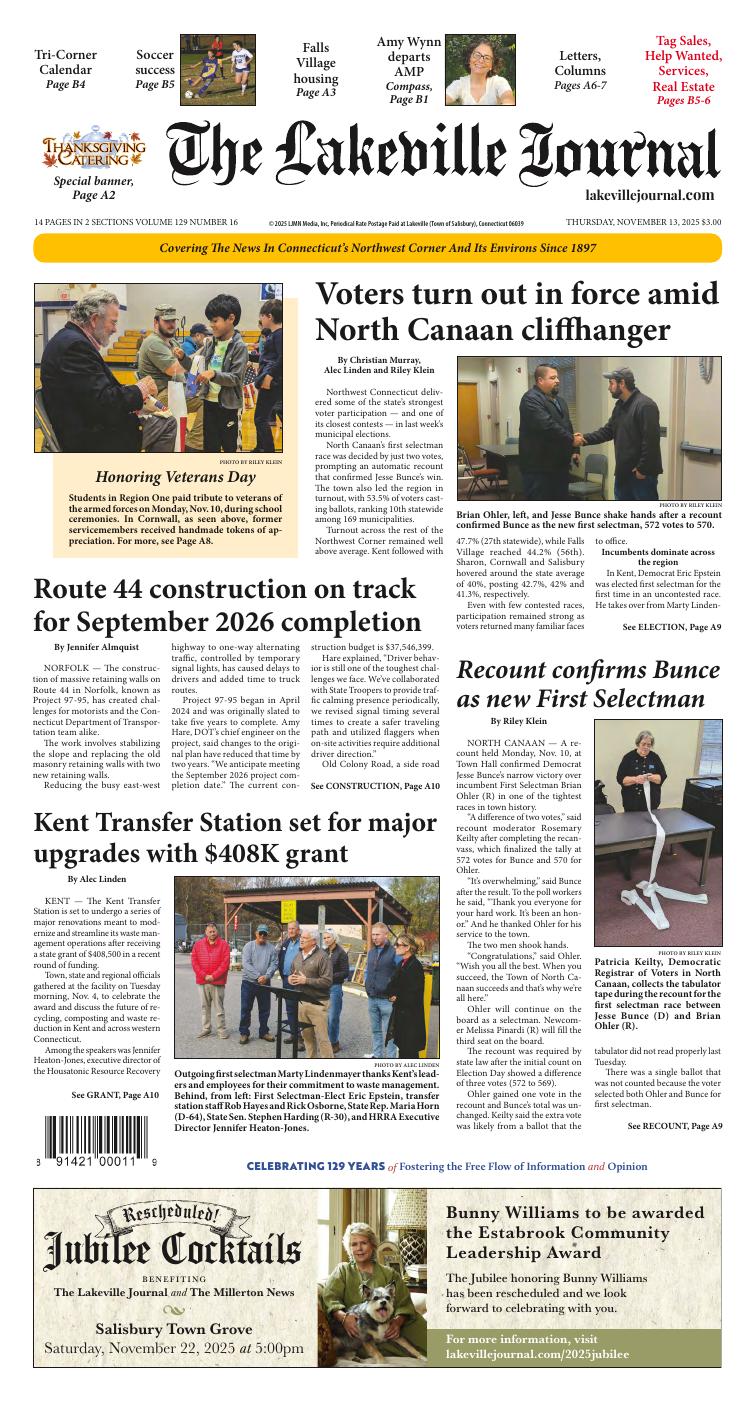Latest News
Kent Volunteer Fire Department and mutual aid crews responded quickly to contain the fire on North Main Street late Sunday night, Nov. 16.
Photo by Bernie Meehan
KENT — A fire broke out inside a downtown general store in Kent Sunday night, prompting reports of explosions and drawing a swift response that prevented wider damage, according to authorities.
Kent Fire Marshal Timothy Limbos said Monday that the blaze erupted at 4 North Main Street — home to Woodford’s General Store — and was first reported just after 11:30 p.m. when Litchfield County Dispatch received 911 calls about flames and explosions in the area.
The first crews to arrive found a heavy fire burning at the back of the building, with flames beginning to extend toward the neighboring structure.
KVFD Assistant Chief Wendell Soule was the incident commander on scene. He said that the severity of the incident was quickly apparent: “I elevated it to second alarm about four minutes after dispatch.”
Firefighters extinguished the blaze quickly, preventing further damage.
No injuries were reported, as neither building was occupied at the time.
Limbos credited the quick containment to the coordinated and professional efforts of the Kent Volunteer Fire Department and mutual aid partners from Cornwall, Gaylordsville, Litchfield, Northville, Sherman, Warren and Wassaic.
Limbos said his office is conducting an investigation into the cause of the fire and that further details will be announced.
Newly elected First Selectman Eric Epstein responded to the call. He said, “There was heavy fire when we arrived” and noted “there were a couple of propane tanks that look like they exploded.”
He said the nearby Swyft restaurant sustained fire damage on the exterior.
A portion of North Main Street was closed while crews dealt with the blaze but later reopened.
More information will be announced when it becomes available.
Keep ReadingShow less
Norfolk fire and ambulance crews responded to a one-vehicle crash on Route 272 (Litchfield Road) shortly after 6 p.m. Friday, Nov. 14.
Photo provided
NORFOLK — A 60-year-old Oregon man is dead after a single-car crash Friday, Nov. 14, according to Connecticut State Police.
Kevin Scott, of Portland, was driving a Ford Escape southbound on Route 272 (Litchfield Road) when he exited the roadway while negotiating a curve and struck a utility pole. The Ford rolled onto its side and the airbags deployed. No other vehicles were involved in the crash and there were no passengers in the car.
Jon Barbagallo, public information officer for Norfolk emergency services, said the roof of the vehicle had to be cut open so first responders could reach the driver. The extrication took about 10 minutes.
Scott was transported by Norfolk Ambulance to Charlotte Hungerford Hospital, where he succumbed to his injuries.
The utility pole snapped at its base.
Anyone with information on the crash is asked to contact Troop B at 860-626-1820.
Keep ReadingShow less
GNH collides with Holy Cross
Nov 16, 2025
Dae'Sean Graves and Owen Riemer brace for impact Saturday, Nov. 15.
Photo by Riley Klein
WINSTED — Holy Cross High School won 36-20 against the Gilbert/Northwestern/Housatonic co-op football team Saturday, Nov. 15.
The hard-fought contest was won in the air. Holy Cross QB Brady Lombardo completed 16/31 passes for 309 yards with five touchdowns and one interception.
GNH pounded the ground game for a total of 209 rushing yards. Cole Linnen, Jaden Hoffman and Trevor Campbell each ran in one TD. Wes Allyn caught an interception on defense.
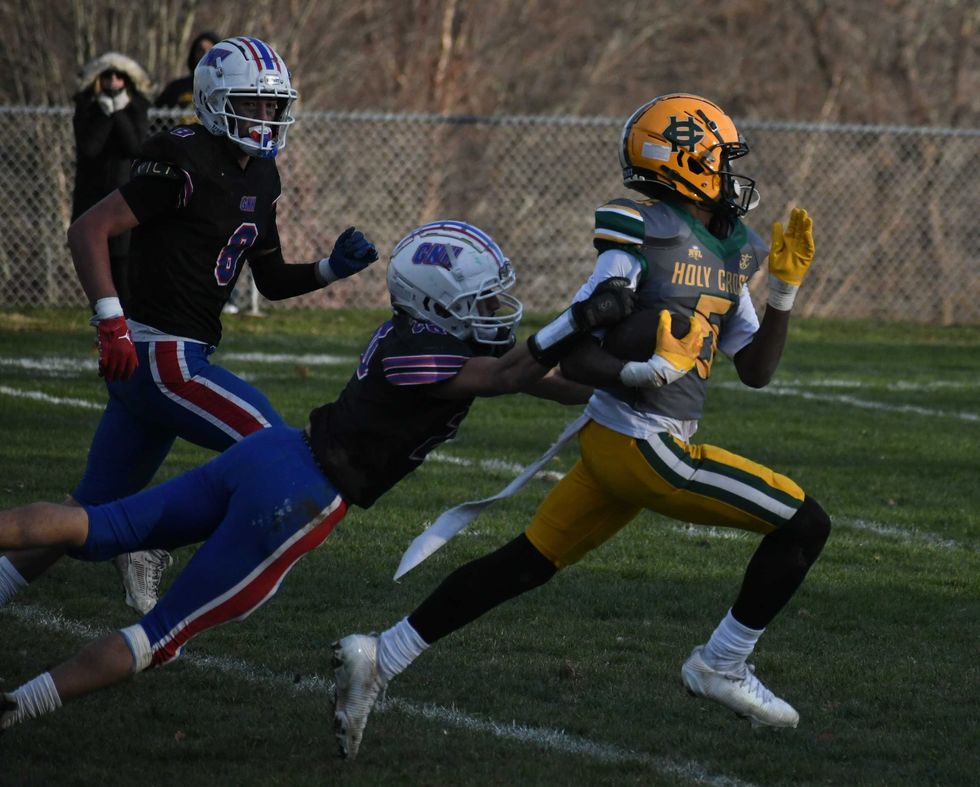
The result did not alter Naugatuck Valley League (Tier 1) standings with Holy Cross (6-3) remaining in third place and GNH (4-5) remaining in fourth place. Seymour and Woodland Regional sit tied at the top with undefeated 9-0 records ahead of their showdown Nov. 26.
GNH scored first against Holy Cross on a seven-yard rush by Jaden Hoffman. Holy Cross responded with three quick reception touchdowns -- two by Dae’Sean Graves and one by Devonne Drake -- before halftime, creating an 18-7 lead at the break.
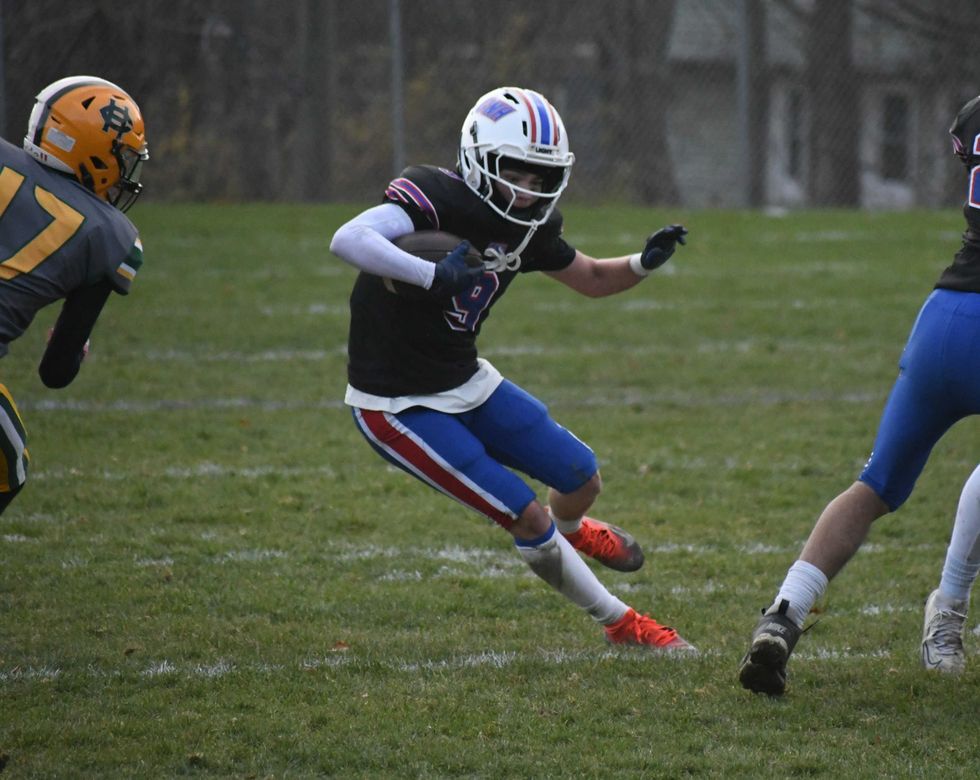
In the third quarter, Trevor Campbell scored for GNH and Nathan Craft scored for Holy Cross.
Holy Cross added two more reception TDs in the final quarter with one by Aaden Hall and another by Drake. GNH’s Linnen scored a 31-yard touchdown run to bring the final score to 36-20.
The final regular season game for GNH will be the Turkey Bowl against St. Paul Catholic High School Wednesday, Nov. 26, at 6 p.m. in Bristol.

Keep ReadingShow less
loading

